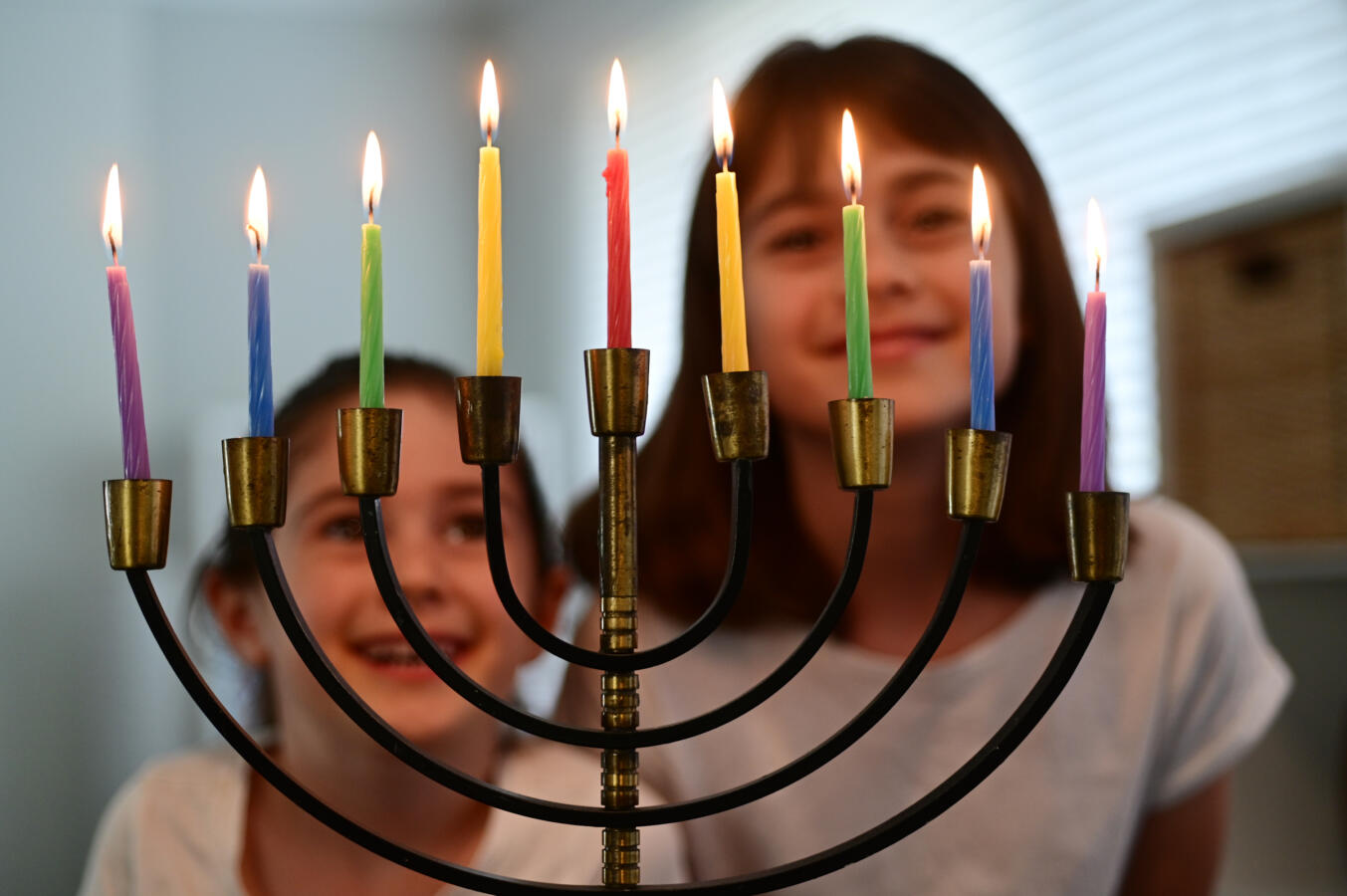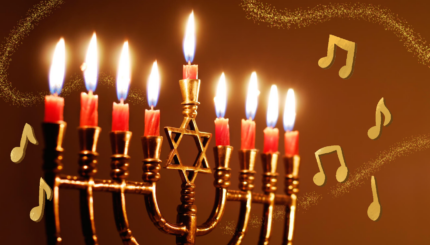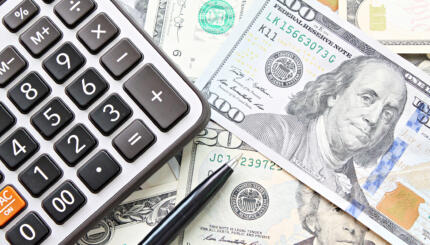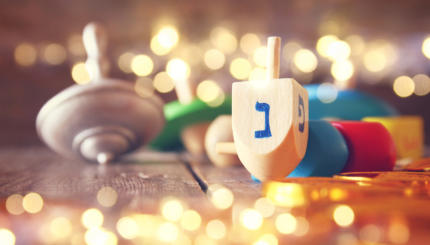In 2025, Hanukkah begins at sundown on Sunday, Dec. 14, 2024 and lasts until sundown on Monday, Dec. 22, 2025.
Find a Hanukkah prep checklist here.
What is Hanukkah?
Hanukkah, which is Hebrew for “dedication,” is the Festival of Lights.
It commemorates the victory of the Maccabees over the Syrian Greek army, and the subsequent miracle of rededicating the Holy Temple in Jerusalem and restoring its menorah, or lamp.
With your help, My Jewish Learning can provide endless opportunities for learning, connection and discovery.
The miracle of Hanukkah is that only one vial of oil was found with just enough oil to illuminate the Temple lamp for one day, and yet it lasted for eight full days.
How Do You Celebrate Hanukkah?
We celebrate Hanukkah at home by lighting the menorah (each night we light one additional candle to the number from the previous night), playing dreidel, and eating special foods unique to Hanukkah. Some people also sing Hanukkah songs or exchange gifts after lighting the menorah, which is also called a hanukkiah. Many people host and attend Hanukkah parties.
Download a printable PDF of the Hanukkah candle blessings here.
What Are Hanukkah Foods?
Many Hanukkah foods are deep-fried in oil, symbolizing the oil from the menorah used in the Temple. These include latkes, or potato pancakes, and jelly doughnuts. Other favorites include the Sephardic delicacy bimuelos and use, of course, applesauce as a latke topping. Chocolate gelt, a candy that gets its name from the Yiddish word for money, is another popular Hanukkah treat.
Your Hanukkah Questions, Answered
What Are the Symbols of Hanukkah and What Do They Mean?
Why Hanukkah Is Actually a Minor Holiday
Must-Know Hanukkah Words and Phrases
How to Greet Someone on Hanukkah
What to Write in a Hanukkah Card
Is It OK to Use an Electric Menorah for Hanukkah?
What Is the Shamash Candle for Hanukkah?
How Is Hanukkah Celebrated in Israel?
What Do the Letters On the Dreidel Stand For?
These Hanukkah Images Are Free To Download
More Hanukkah Reads From Our Partner Sites
The 21 Best Hanukkah Episodes on TV
The History of Hanukkah Donuts
Eid Al Bnat: a Jewish Hanukkah Tradition for Women
9 Hanukkah Books for Kids of All Ages
12 Fun and Easy Ways to Make Your Own Menorah
Future Hanukkah Dates
In 2026, Hanukkah will begin on Friday December 4 and conclude on Saturday December 12.
In 2027, Hanukkah will begin on Friday December 24 and conclude on Saturday January 1.
In 2028, Hanukkah will begin on Tuesday December 12 and conclude on Wednesday December 20.
Last year, Hanukkah was celebrated from December 25 to January 2.
Explore Hanukkah’s history, global traditions, food and more with My Jewish Learning’s “All About Hanukkah” email series. Sign up to take a journey through Hanukkah and go deeper into the Festival of Lights.



